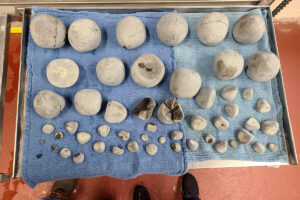Poisonous Plant Risk Increases as Pasture Grass Goes Dormant
As autumn rolls around, pastures become depleted as grass and plant growth slows prior to going dormant for winter. So, it’s not surprising that this time of year can also bring an increase in reports of horses becoming ill from eating something they shouldn’t have.
Karyn Bischoff, DVM, MS, Dipl. ABVT, a diagnostic toxicologist at Cornell University’s New York State Animal Health Diagnostic Center, said it does appear there are more suspected cases of poison plant ingestion in late summer and autumn, but also says these are difficult to diagnose.
"Plant ingestions over time can cause chronic disease, so by the time the horse is noticeably sick, the plant is gone because it was all eaten, it’s out of season, or the horses were moved to another stable or pasture after exposure," Bischoff explained.
She added that plant toxins can be difficult to find in the body as the particular toxin are sometimes not known, there are no good tests for it, or the toxin has metabolized and gone before the horse presents clinical signs of serious illness
Create a free account with TheHorse.com to view this content.
TheHorse.com is home to thousands of free articles about horse health care. In order to access some of our exclusive free content, you must be signed into TheHorse.com.
Start your free account today!
Already have an account?
and continue reading.
Related Articles
Stay on top of the most recent Horse Health news with

















